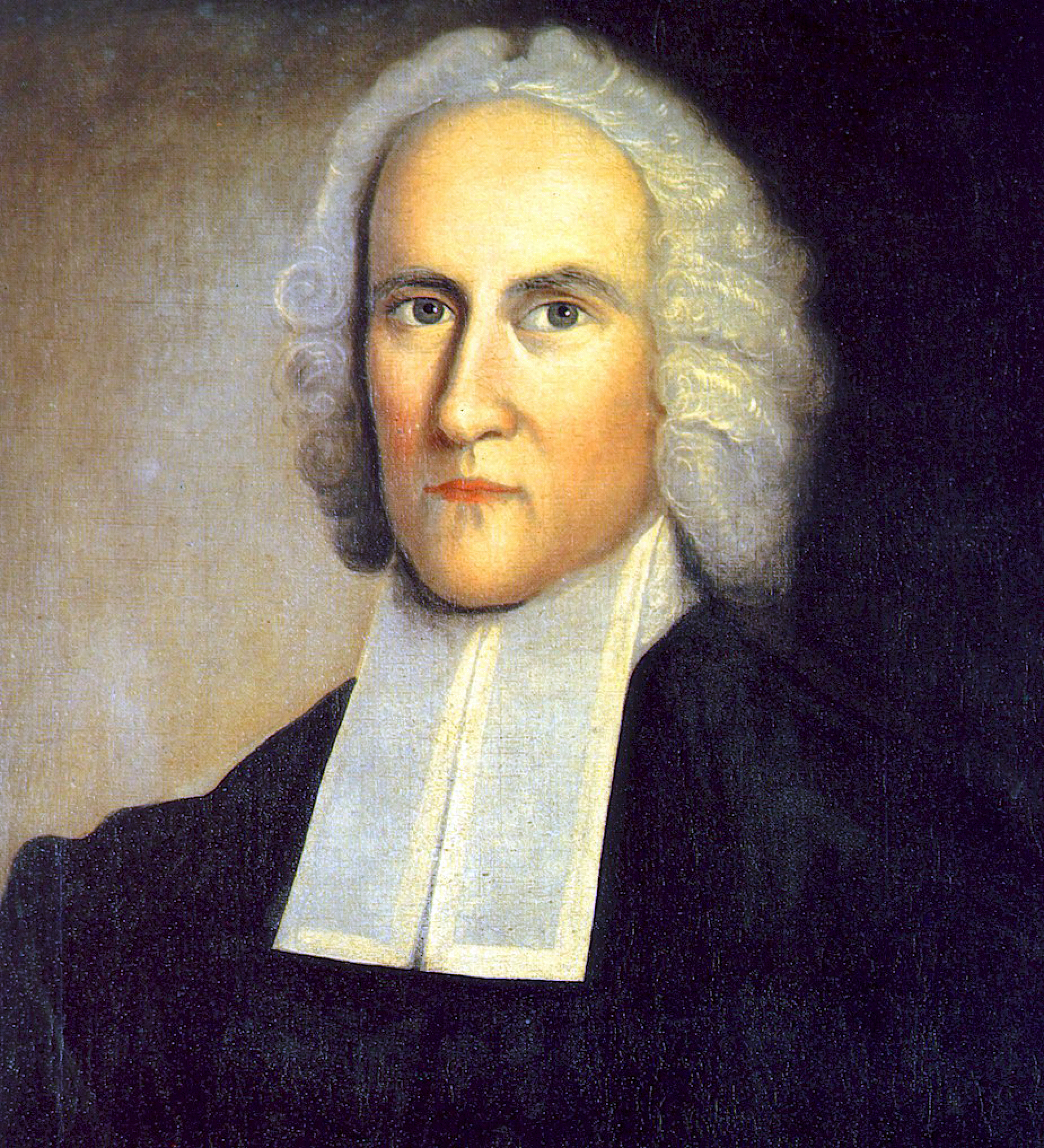On Covenant Baptism (a.k.a. “Why we sprinkle babies.”)
A quick disclaimer: A la our mantra that "you don't have to believe in order to belong," agreement with our convictions regarding infant baptism is NOT necessary for involvement, membership, or leadership (except Elders). The Table is exactly the kind of community where you are encouraged to examine and wrestle with your beliefs without pressure to conform, including this one!
My Family's Story
During my first year at Covenant Theological Seminary, I joked with my dad that I’m doing so well that they named a building after me – the “Edwards” Building (it was a lame joke). In reality, it was named after the brilliant puritan preacher, Jonathan Edwards. His sermons are often studied in public schools for their literary genius alone. My bad joke led to me telling my dad about his life and ministry…
“You know, I’m pretty sure we’re related to him.”
Come on, having the same last name doesn’t mean that’s the case!
My Dad then explained how, growing up, two framed prints of a man and woman from the 1800s hung in the stairwell of their home. The street lamp outside shone through the window at just the right angle to make it look like their eyes glowed, and he’d be too scared to go downstairs for a drink of water.
“In fact, I think I know where those pictures are…”
You’re kidding me, right…? Where?
We went into the garage, opened a box and… sure enough, he pulled out two antique-framed prints: one each of Jonathan and his wife, Sarah Edwards. He goes on to explain that my grandfather wrote a book called “The Edwardes Legacy” (the latter “e” was since dropped from the original Welsh spelling), and handed me a copy. I poured through it for the next few hours, tracing our family way beyond Jonathan Edwards, all the way back to likely illegitimate child of Henry VIII’s who became a key advisor to Queen Elizabeth and Professor of Divinity at Oxford University (a long story with lots of drama just waiting for it’s own BBC series). This was simply unreal.
It’s hard to explain how monumental of a revelation this was for me… I did not grow up in any church whatsoever and had only been a Christian 2ish years. Then I read that I’m among the 9th generation directly descended from the most brilliant and important philosophical theologian in American history. As incredible as all that was, it paled in comparison to an even more powerful revelation: of the 8 generations between Jonathan Edwards and I, my dad and maybe my grandpa (who passed away in 2006) are the only ones who are not Christian. Of those 6 Christian generations, 4 of them were pastors!
Suddenly, a few of the harder-to-swallow things I was learning in my 1st year at Covenant clicked into place, specifically: why Presbyterians baptize infants (hang with me here).
God’s Family Story
The Christian Bible describes a God who is faithful: not only to individuals, but also to families – including and especially children of believers (Genesis 17:7; Acts 2:39; 1 Corinthians 7:14; and Acts 16:31-33). The means by which God identifies His family in the Old Testament was circumcision, which transitioned in the New Testament to baptism (the Apostle Paul explicitly equates the two in Col 2:11-12). While babies can’t explicitly articulate their faith like an adult can, they know quite a bit about trust and faith at birth (Psalm 22:10), such that Jesus says a mature faith is… well… childlike (Luke 18:15-17).
Our Western Individualism clashes with the idea that an infant (utterly and completely dependent) would be considered part of God’s family before being able to choose for him/herself, but that’s not what adult baptism is about either! As one pastor I know has said, “Baptism is all about what He’s doing, not what we’ve done. It celebrates His initiation, His pursuit – what He has done for us and to us. ”
If our pursuing God is only because he first pursued us (Ephesians 1:4-5; 1 John 4:19), then it should not be at all surprising that He would consider our children to also be part of His family. Indeed, it should be the church’s assumption (not presumption) that our children are or will be Christians, and treated as such until proven otherwise. If that sounds crazy, just read Psalm 22:10!
So what?
There are countless and profoundly beautiful implications of infant baptism, but I want to focus on how this has impacted me personally... Jonathan Edwards was known to have regularly prayed for his family 7 generations deep. Here I am (the 8th), having not grown up in a Christian home and, only after starting my pastoral training, discover that I’ve unknowingly taken up the family vocation!
But did you notice something in all that?
Jonathan Edwards did not pray for me.
Rather than feeling left out, I am even more encouraged because it is a powerful reminder that God’s faithfulness does not depend on our faithfulness (2 Timothy 2:11-13). Yes, God answers and delights in our prayers, but primarily as a Father who longs to spend time with and bless His kids. He is faithful especially when we are not, and because we are not.
This is the theological heart of infant baptism! To baptize our children is to trust in God’s faithful, saving work, and not our own (or our children’s!) faithfulness. If grace is dependent on our choosing God, it is a contractual transaction and (by definition) not grace. Much like baby dedications in many reformed baptist churches (which we love, but doesn’t quite go far enough!), we do not baptize babies to guarantee or effect their salvation, but to entrust (with hopeful expectation) both them and our parenting to God’s faithfulness.
To baptize a baby is to formally include them in the very means of grace God has said he would use to redeem all Creation: the Church (God's family).
This Sunday, I will baptize my son: Jonathan Ransom Edwards (we call him "Ransom"). His name is not a coincidence, but a symbolic representation of this powerful truth. It is our hopeful expectation and assumption that he will one day make his own the Story that he has been born into – the Gospel story of God’s covenantal, generational and unconditional faithfulness.
Additional Resources
For a much deeper theological and practical exploration of Infant Baptism, please see the following articles (and/or shoot Brad an email to discuss it over liquid refreshment... preferably the kind that involves hops).


